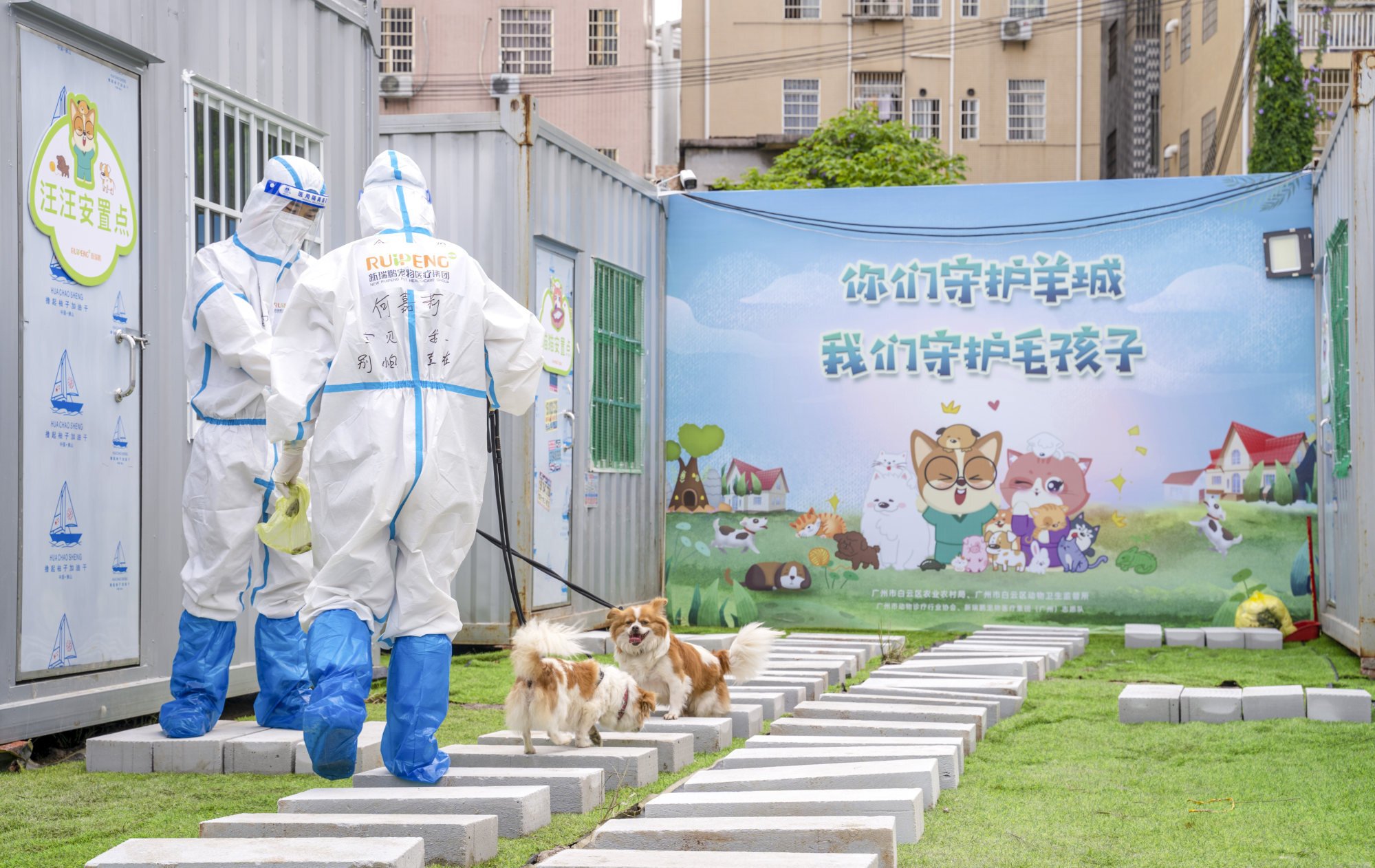
Guangzhou becomes second city in China to open pet quarantine centre
- The facility for animals whose owners have been quarantined opened earlier this month with the help of a company that operates a similar service in Shenzhen
- Pet owners across the country have expressed concern about what will happen to their animals following a number of cruelty cases
Liang Wanying, a local piano teacher whose four poodles went to the centre when she was quarantined in mid-April, said it “really eased my mind” to know the dogs were being looked after.
The day after she went into quarantine, volunteers showed up at her door to pick up her dogs, to be cared for at the centre.
“Every day, they feed my dogs and send me pictures and videos of them walking the dogs,” she said.
China Covid-19 response chief stands firm on strict Shanghai response
In mid-April, the agricultural and rural affairs bureau in Baiyun district contacted New Ruipeng Pet Healthcare Group, a company that has already helped to set up and run similar facilities in the neighbouring city of Shenzhen.
The makeshift centre, a few container boxes near Baiyun’s Animal Health Inspection Institute, could house up to 100 animals, said Chen Yu, leader of a volunteer team from Ruipeng.
At the height of the outbreak, the centre housed a total of 62 animals, which were collected by volunteers after being tipped off by neighbourhood staff that their owners had been quarantined.
They then disinfect the animals three times, and conduct a nucleic acid test, before putting them in cages in the centre.
As well as feeding the animals and giving the dogs a daily walk, staff at the centre regularly disinfect them and take their temperatures and samples from their fur to check for coronavirus.
“We have to take precautions, because the pets come from people who are in quarantine, so there’s a potential risk for infection,” Chen said.
During the outbreak, various local governments in China faced criticism for the inhumane treatment of pets.
Following that incident, 24 lawmakers in Shanghai petitioned to establish a unified management measure for pets.
Shenzhen opened its first animal quarantine centre in March, following an appeal by residents in the Shatou area of the city.
Hundreds of residents were sent to a centralised quarantine facility following an Omicron outbreak, and one worried pet owner in Shatou wrote an open letter calling for a more humane arrangement.
Chinese authorities vow to crack down on Covid price gougers
“Pets have lives too, they should be respected. We hope to take our cats and dogs into quarantine,” she wrote.
Following the appeal the Shenzhen authorities teamed up with Ruipeng and two animal welfare NGOs to set up the first shelter of its kind in China, offering free care for animals whose owners were in quarantine.
In early April, after Shatou’s outbreak was quelled, the Shenzhen government announced another centre would open in Guangming district to prepare for future outbreaks.

Chen said the number of pets in the Guangzhou centre was gradually falling as more owners were released from quarantine.
He was not sure what the government had in mind for the centre, but he thought the facility was too expensive to be used just once.
“If it’s needed in the future, we can start operating at short notice,” he added.

.jpg?itok=H5_PTCSf&v=1700020945)